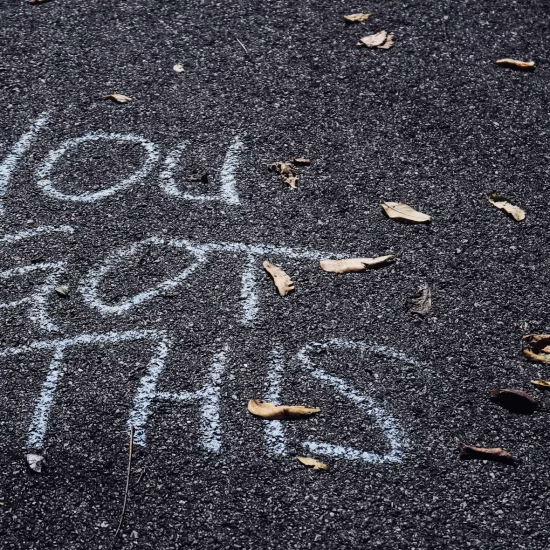
Written by the authors of the upcoming “Power Up Your Math Community: A 10-Month Practice-Based Learning Guide for Grades K-5”, to be published by Corwin in September 2024.
Celebrate your students! Applaud their efforts and growth this school year.
Celebrate your class community! Publicly appreciate all the ways your students have enjoyed doing math together and supported each other as math learners.
Celebrate yourself and your teaching team! Take pride in your service to students and your growth as math learning facilitators.
You and your students have worked diligently all year to build their mathematical understandings, proficiencies, and dispositions. During these final weeks of the school year, acknowledge their efforts and set them up for continued success as math learners with a celebration of their math learning.
Why take time to celebrate math learning?
- Learning celebrations solidify and strengthen math learning. When we give students opportunities to reflect on their learning, we activate neural processes that deepen understanding and boost memory. Brain scientists suggest that reflection-on-learning initiates specific types of cognitive activity that strengthen learning (Oakley et al., 2021; Willis & Willis, 2020).
- Making connections –Learning celebrations that revisit concepts across the math curriculum help students make connections between mathematical ideas, strengthening neural pathways to support retrieval and transfer of this learning. According to NCTM’s Principles and Standards for School Mathematics (1999), “When students connect mathematical ideas, their understanding is deeper and more lasting, and they come to view mathematics as a coherent whole.”
- Synthesizing – Learning celebrations in which students summarize their learning allow students to reexamine and mentally manipulate important mathematical ideas. This cognitive process produces new conceptual connections and expands memory. Willis and Willis (2020) explain that students’ creation of tweets, haikus, rap songs, and blogs that capture the essence of their learning can deepen understanding and support long-term memory.
- Learning celebrations grow students’ mathematical identities and agency.
Celebrations of math learning help students see themselves as mathematically capable and recognize mathematics as interesting and worthwhile. Math learning celebrations build student self-efficacy and their self-awareness of personal and mathematical strengths. They send important messages to students:
- You are a math learner! Your learning work this year has helped you grow in important ways as a mathematician.
- You have agency in your future math learning journey. Because of all you have learned about math, about how to learn math, and about yourself this year, you are even better equipped for math learning challenges and successes yet to come.
Learning celebrations position students to look forward to their next school year and the continuation of their math learning journey with enthusiasm and a sense of confidence.
Designing Powerful Celebrations of Math Learning
In their book The Power of Moments: Why Certain Experiences Have Extraordinary Impact (2017), Chip and Dan Heath advocate for designing unique experiences to help students reflect on their learning and its meaning in their lives. They explain that we can plan and orchestrate brief but memorable learning experiences for our students, defining moments that can positively shape their futures. Based on their research, the Heath brothers assert that defining moments often include one or more of these elements:
- Elevation: Defining moments rise above the ordinary; they feel special to those involved.
- Insight: Defining moments allow individuals to understand themselves or the world more completely.
- Pride: Defining moments help individuals to notice and name their achievements and ways that they have overcome challenges.
- Connection: Defining moments celebrate community and recognize others’ contributions.
We can design simple celebrations of our students’ math learning that incorporate these elements by using questions like these to spark reflection and discussion:
- Why is this learning special and important? (Elevation)
- What does this learning mean to you? How will you use it in your life? (Insight)
- What are some specific things you did to make this learning possible? What was challenging, and how did you overcome these challenges? (Pride)
- Who contributed to and supported your learning? (Connection)
You can use the four elements of defining moments to design a math learning celebration for your students. Here are three ready-to-go ideas.
Math Learning Celebration 1: Mapping Our Learning
Mind maps, also known as concept webs, are visual representations of big ideas, related ideas, and the connections between them. You can create a class mind map to review and synthesize the math learning that has taken place across the year and then have students use the reflective questions above to create personal math mind maps that celebrate their individual growth as mathematicians.
- Look at your curriculum standards and identify the big mathematical ideas that you and your students have explored this school year.
- Write each of these big ideas in a different spot on a large sheet of chart paper.
- Ask students to think individually about what they learned related to each of these topics and the connections between them. Have students discuss their thinking with a partner. Invite students to share whole group, capturing their thoughts on the chart by adding branches from and between the original ideas. Use icons and colors to enhance understanding of the ideas shared.
- Post the mind map in a visible location. Continue to refer to and add to students’ initial ideas.

Example of a Mind Map
Math Learning Celebration 2: A Letter to Math
At the beginning of the school year, math teacher Sarah Strong asks her students to write a letter to Math as a way of learning about their current relationship with mathematics and their mathematical identities (Strong & Butterfield, 2022). This same activity can be used at the end of a school year to help your students reflect on, synthesize, and celebrate their math learning across the year.
- Post a list of mathematical topics that you and your students have explored together for students to reference. You might also post a word bank or refer students to their personal math glossaries as a catalyst for thinking about their math learning.
- Using the reflective questions given earlier, give students time to think and write about their math learning. Next, have students discuss their learning with a partner.
- Ask students to “write a letter to mathematics” as a way of summarizing their learning and its meaning in their lives.
- You might close this learning activity by having students share their letters with their partner from earlier and then identify their three most important learnings from the year to be shared with the class.
Math Learning Celebration 3: A Year in the Life of a Mathematician
Support your students in reflecting on their math learning and its significance to their growing mathematical identities by having them write math autobiographies.
You might use the format of a number book as a structure for the pages in this book:
- 10 math concepts I learned about this year
- 9 math skills I grew this year
- 8 math vocabulary words I learned to use
- 7 math tools I find useful
- 6 strategies I use to persevere with challenging problems
- 5 ways I use math outside of school
- 4 math careers that interest me
- 3 challenging math tasks I especially enjoyed this year
- 2 things I want to learn about math next year
- 1 most important thing I am learning about myself as a mathematician
You might also ask students to include timelines, tables, graphs, and other mathematical representations that visually show aspects of who they are as mathematicians.
After publishing your students’ math autobiographies, celebrate their math learning journeys by having them share their math stories with each other, with another class, or with parents.
Celebrate You!
Your work this year has enriched your students’ lives and positioned them for future success as math learners and users. Learning celebrations benefit students, but they also remind teachers and teacher teams of the importance of their work as facilitators of math learning.
As the school year comes to a close, take time to name and celebrate your own learning. What have you learned from your students this year? What new instructional practices did you try, and how did they impact student learning? Acknowledge the link between your daily teaching actions and your students’ growth as mathematicians and human beings. Celebrate and say “thank you” to yourself for all you do on a daily basis to make a positive difference in the world!
References:
Fredrickson, B. L. (2009). Positivity: Discover the upward spiral that will change your life. New York: Harmony Books.
Heath, C., & Heath, D. (2017). The power of moments: Why certain experiences have extraordinary impact. New York: Simon & Schuster.
National Council of Teachers for Mathematics (NCTM). 1999. NCTM Principles and Standards for School Mathematics, Executive Summary. https://www.nctm.org/uploadedFiles/Standards_and_Positions/PSSM_ExecutiveSummary.pdf
Newhouse, K. (2023, September 26). How listening to students’ stories can improve math class. MindShift. https://www.kqed.org/mindshift/62436/how-listening-to-students-stories-can-improve-math-class
Oakley, B., Rogowsky, B., & Sejnowski, T. (2021). Uncommon sense teaching: Practical insights in brain science to help students learn. New York: TarcherPerigee.
Strong, S., & Butterfield, G. (2022). Dear Math: Why kids hate math and what teachers can do about it. Highland Heights, OH: Times 10 Publications.
Willis, J., & Willis, M. (2020). Research-based strategies to ignite student learning: Insights from neuroscience and the classroom. Alexandria, VA: ASCD.





